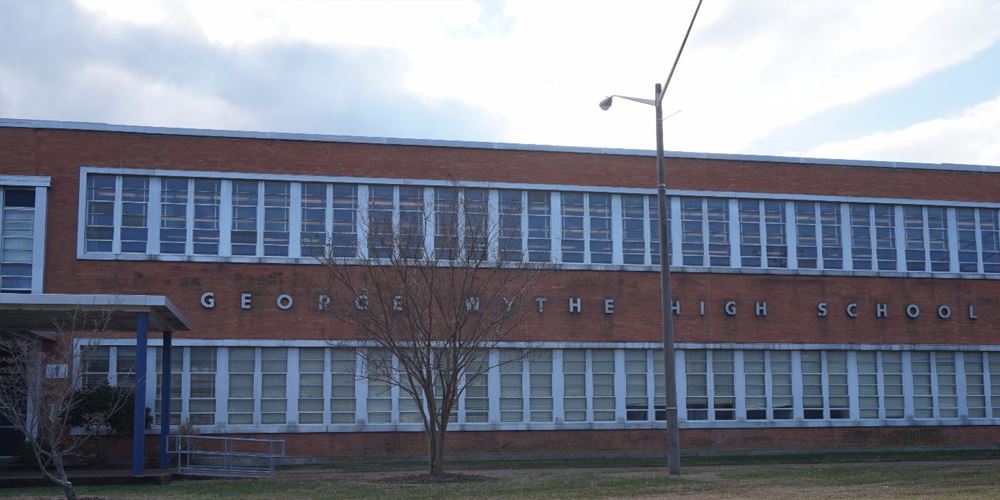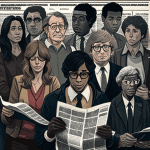In the late summer of 2015, Dyett High School in Chicago, Illinois still had its doors closed. Chicago Public Schools closed Dyett after years of low standardized test scores. With Dyett closed, students from this district in Chicago were to be bussed across town to another school, furthering the issue of overcrowding and removing students from their communities. However, parents and community members fought back. Adopting the Chicago tradition of a hunger strike, these families successfully advocated for their right to have a school in their community, and fought to decide the fate of the school itself. What they cultivated, ultimately, was an arts school reflective of the famous jazz violinist whose name still adorns the building.
“We are some of the parents that fought to save the school last year. I just want to let you know that this community has your back,” said Jitu Brown, a community activist in Southside Chicago. This community, our community. The reopening of Dyett High School was a victory not only for the students, families, and community members of southside Chicago but for local control of school systems everywhere.
Richmond, Virginia would do well to remember the power of the community in determining what is best for the city’s public schools. As we struggle to define who exactly has control over our school buildings — the school board or the mayor — we must remember the importance of local control and community power.
Richmond has a long pattern of caving to corporate demands, which are generally in favor of central control of school districts by the mayor, not the school board. Nothing makes this more obvious than the push by Tom Farrell and The Gang of 26 in 2007 to abolish the school board. This thinly veiled attempt to move power away from local communities and consolidate decision-making power in the mayor’s office did not come to fruition, but this certainly was not the end of the argument. Although the proposal did not pass, it left a lasting imprint on those concerned with Richmond Public Schools and the school board’s power to function on its own.
When Mayor Levar Stoney came into office in 2017, he recognized the need to mend the relationship between his office and the school board. He proposed an education compact that intended to do three things: 1) establish institutionalized collaboration between the mayor and the school board, 2) define goals aimed at improving educational and economic outcomes for youth and their families, and 3) develop a shared funding strategy that would employ the use of private and public funding options. Despite the best intentions of this compact, it served to consolidate power in Stoney’s administration. The original proposal caused some concern, principally with regard to how the public would be involved in the committee process. The limit of two members from each distinct group of the compact was not in compliance with Virginia’s sunshine law, thereby not affording the public (i.e., parents, students, community members) meaningful ways of participating. Additionally, the original compact did not mandate translation into Spanish, an obvious oversight that was fortunately corrected in the amended proposal. Despite being a goodwill effort to connect the disparate parties whose job it is to assure the well-being of our schools and communities, this compact has effectively served as a way to limit the direct power of the school board.
All of this is background for the most recent attempt to bring power back into the hands of the community via the school board. School board member Kenya Gibson’s “Schools Build Schools” proposal allows for the school board to control the process of planning and building schools. This proposal, passed in a 5-4 vote back in April, returns the ability to plan and build schools back into the hands of the school board. This is important on two fronts. First, communities will have a far greater voice in the planning and implementation of new school building projects. This is of immediate concern to the families of George Wythe High School, who have waited too long for the new school they were promised in 2017 as part of the school board’s decision in phase 1A of the FY2018 Facilities Report Recommendations. Second, the school board is far more responsive to community needs and far less informed by political decisions and corporate interests. Stoney has proven on multiple occasions his willingness to either leverage or jeopardize school funding through development projects across the city for his own political gain.
Stoney undermined the power of the board recently by issuing his own Request for Proposals (RFP) for the new George Wythe High School. In doing so, he indicated that families had waited far too long already, a fact that he could have remedied years ago when the need for a new George Wythe first became obvious. Stoney neglected to follow through on the promise of building a new school in 2018 but now seems to understand the political necessity of addressing this issue. His ability to flip this from a missed opportunity for him to something he is doing in spite of the board demonstrates a master class in political deception. This RFP and effort to work with the board represent another attempt by Stoney to “come together.” However, as school board member Stephanie Rizzi noted, “We were offered something that didn’t reflect what we asked for. That’s not a compromise.”
Community activists have long advocated for a new George Wythe. Currently, the push from the community, influenced by the words of the mayor, is for the school board to accept the compromise from the city in order to build the school faster. However, what is being lost in this conversation is that the loss for the school board is a loss for the community. In the long run, allowing the city to intervene on local matters diminishes the voice of the community. Of special concern is the call for a 2,000 student school in a district that does not require this capacity. Will this be another attempt to consolidate old schools into one large new school? Could Richmond fall into the same problem as Dyett High School in Chicago?
The families of Dyett High School may provide a glimpse into the future for Richmond. If we wish to maintain our ability to decide for ourselves how best to run our schools, we must do as Paul Gorski indicates: fight alongside the community, not for the community. This is the only way to ensure that educational inequity is not merely mitigated, but actively eradicated. In Richmond, this will happen through our school board. The families of Dyett High School knew this to be true and they fought for their voice to be heard. Communities, not individual political interests, should decide the fate of our schools.
The school board has announced a public meeting taking place on July 13th from 6 to 7:30 pm, to allow time for public comment and community input. Community attendance and advocacy at this and additional meetings are the kinds of engagement necessary to make meaningful change and ensure community control of our public schools. It’s unclear whether Stoney will put aside his pride and not pit the community of George Wythe against the school board elected to represent them; so far, he has done just the opposite. Regardless, the community must be heard and they must be allowed to make decisions for themselves, uninfluenced by the political woes of Richmond politics.
Note: Op-Eds are contributions from guest writers and do not reflect RVA Mag editorial policy.
Top Photo via RVAschools.net



